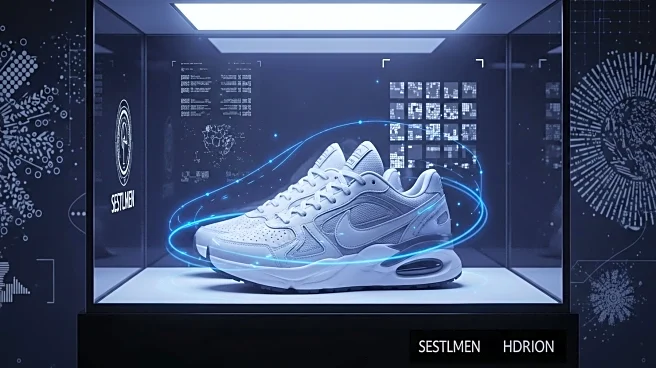What is the story about?
What's Happening?
Nike has settled its trademark lawsuit against StockX, an online reseller, over allegations of selling counterfeit shoes and unauthorized NFTs. The settlement was filed in New York federal court, with both parties agreeing to dismiss the case with prejudice, meaning it cannot be refiled. The lawsuit, initiated by Nike in 2022, claimed that StockX's NFT images of Nike sneakers infringed on Nike's trademarks, potentially confusing consumers into believing these digital assets were associated with Nike. Additionally, Nike accused StockX of selling counterfeit shoes, undermining StockX's claim that NFTs were used to guarantee authenticity. StockX denied these allegations, labeling them as disingenuous. U.S. District Judge Valerie Caproni had previously found StockX liable for selling 37 pairs of counterfeit shoes, with a jury trial on remaining claims scheduled for October.
Why It's Important?
The settlement between Nike and StockX is significant for the sneaker and digital asset markets, highlighting the complexities of trademark rights in the era of NFTs. As major brands like Nike venture into digital assets, ensuring trademark protection becomes crucial to prevent consumer confusion and protect brand integrity. The case underscores the challenges faced by companies in maintaining authenticity and combating counterfeiting in both physical and digital realms. For StockX, resolving the lawsuit allows it to continue operations without the looming threat of legal repercussions, while Nike secures its brand's reputation and intellectual property rights. This development may influence how other companies approach NFT-related trademark issues and counterfeiting claims.
What's Next?
With the lawsuit settled, both Nike and StockX can focus on their respective business strategies without the distraction of ongoing litigation. Nike may continue to expand its presence in the NFT market, leveraging its brand strength to offer unique digital assets. StockX, on the other hand, might enhance its authentication processes to prevent future counterfeiting issues and restore consumer trust. The resolution could also prompt other companies to review their NFT strategies and trademark protections, potentially leading to more stringent industry standards and practices.















